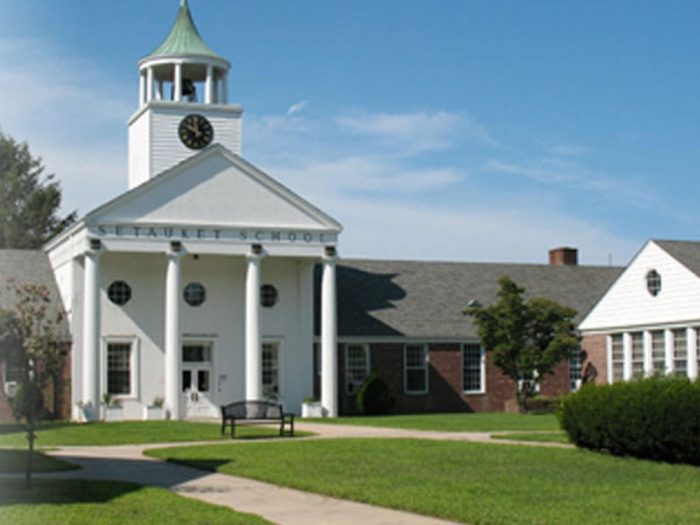By William Stieglitz
Over a hundred people attended the March 26 Board meeting for Three Village Central School District, where reported incidents of antisemitism were discussed. The week before, Superintendent Scanlon had sent out a letter saying the incidents were part of “a larger issue occurring that we need to address” and that the district “is planning immediate and long-term, systemic methods to address antisemitism, racism and hate speech.” The meeting’s high attendance required the use of two overflow rooms, where community members watched the meeting down the hall via livestream.
Scanlon said the incidents “occurred at our middle level” and “most incurred speech and insensitive acts or remarks,” though there were no acts of violence or threats. Under state regulations, he could not comment on the specifics as a matter of protecting students’ privacy, though the public comments from community members, along with the district’s proposed solutions, did provide context.
Community member Shelly Samson thanked Scanlon for the letter following what she described as “the antisemitism incident that occurred at Gelinas Junior High School… in a social studies class after viewing a film on the Holocaust,” expressing concern for the “very insensitive remark.” According to Scanlon, the board had met with the Westchester Holocaust Center following the incidents and Christina Cone, the director of social studies, will be bringing in a Holocaust survivor on April 9 for 10th grade students to meet. Additionally, he announced they have been communicating with the Anti-Defamation League (ADL) and the Jewish Partisan Educations Foundation (JPEF), and that the board will be looking at training for teachers and reviewing the current curriculum. “It doesn’t matter if it was 1 or 41,” he said regarding the incidents. “One is enough.”
Everyone who made public comments on the incidents thanked or praised the board for their handling of the matter thus far. Community member and parent Galia Lahav said she’d like to see education on implicit antisemitism in addition to the “very explicit antisemitism” of the recent incidents. Rabbi Aaron Benson from the North Shore Jewish Center spoke on the number of antisemitic incidents nationwide, saying there were 3,697 reported in 2022, then 3,291 from the time of the October 7, 2023 attack in Israel to the end of the year alone. Deborah Peretz, from the Israel advocacy group Stand With Us, asked for learning related to current issues, in addition to Holocaust education. “The Jewish people are living through history right now…. There’s a 23-year-old,” she said, referring to Israeli American solider Omer Neutra, who was reported killed during the October 7 attack. “He’s dead but he’s in the Gaza tunnels right now. He’s from Plainview. It’s 30 minutes away.”
Rabbi Josh Gray from Temple Isaiah did not speak during the public comment portion, but said afterward that he had met with Scanlon that week and is grateful the district is being proactive. Speaking on what actions community members can take to combat antisemitism and other forms of discrimination he said, “the best thing to do is to speak up when something is said… Call out hate wherever we see it. Be an ally to marginalized communities, and don’t let it slide. I think if we all stick together and stick up for each other we can create a community of communities, which is the ultimate goal.”
The other matters discussed at the Board meeting included the questions of whether to arm school guards and whether to take money from the emergency reserves to fund the budget. “The district is bankrupt in the sense that we can’t make payroll,” said trustee Dr. David McKinnon, who added they are currently projected to lose about 80 employees. The proposed budget is set to be adopted on April 9 with the community vote on May 20.














